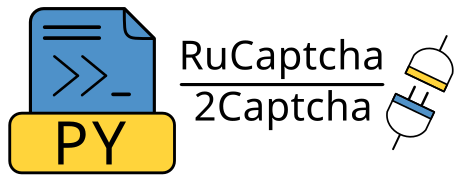TemuCaptcha¶
To import this module:
from python_rucaptcha.temu_captcha import TemuCaptcha
- class python_rucaptcha.temu_captcha.TemuCaptcha(save_format: str | SaveFormatsEnm = SaveFormatsEnm.TEMP, img_clearing: bool = True, img_path: str = 'PythonRuCaptchaImages', *args, **kwargs: dict[str, Any])¶
- __init__(save_format: str | SaveFormatsEnm = SaveFormatsEnm.TEMP, img_clearing: bool = True, img_path: str = 'PythonRuCaptchaImages', *args, **kwargs: dict[str, Any])¶
Solve TemuImageTask CAPTCHA via 2Captcha/RuCaptcha API.
This class creates and monitors TemuImageTask jobs, which require a base64‐encoded background image plus an array of movable image pieces (parts) in base64 format. It extends BaseCaptcha to handle the low‐level request/response workflow.
- Parameters:
save_format (
str | SaveFormatsEnm) – Where to save temporary images. - SaveFormatsEnm.TEMP: use system temp directory - SaveFormatsEnm.CONST: keep files in img_path until deletionimg_clearing (
bool) – If True and save_format is CONST, delete the img_path directory when this instance is destroyed.img_path (
str) – Directory under which to store downloaded or decoded images before sending to the API.*args – Positional args forwarded to BaseCaptcha constructor (e.g. client_key, method override).
**kwargs (dict[str, Any]) – Keyword args forwarded to BaseCaptcha for task creation. Common params include: - redirectUri: URL to confirm CAPTCHA resolution - any other API‐supported parameters
Examples
>>> captcha = TemuCaptcha(rucaptcha_key="YOUR_API_KEY") >>> response = captcha.captcha_handler( ... parts=["part1_b64", "part2_b64", "part3_b64"], ... captcha_base64=b"full_image_b64" ... ) >>> print(response) { "errorId": 0, "status": "ready", "solution": { "coordinates": [{"x":155,"y":358}, {"x":152,"y":153}, {"x":251,"y":333}] }, "cost": "0.0012", "createTime": 1754563182, "endTime": 1754563190, "taskId": 80306543329, "ip": "46.53.232.76", "solveCount": 1 }
- captcha_handler(parts: list[str], captcha_link: str | None = None, captcha_file: str | None = None, captcha_base64: bytes | None = None, **kwargs: dict[str, Any]) dict[str, Any]¶
Synchronously solve a TemuImageTask.
- Parameters:
parts (
list[str]) – List of base64‐encoded strings for each movable image piece.captcha_link (
str | None) – URL to background image. Overrides captcha_file and captcha_base64 if provided.captcha_file (
str | None) – Path to an image file to read & send.captcha_base64 (
bytes | None) – Raw bytes or base64 string of the background image.**kwargs (dict[str, Any]) – Passed through to the HTTP request call (e.g. timeout, headers).
- Returns:
- Full JSON response from the 2Captcha/RuCaptcha API,
including errorId, taskId, status, solution, cost, times, etc.
- Return type:
dict[str, Any]
- async aio_captcha_handler(parts: list[str], captcha_link: str | None = None, captcha_file: str | None = None, captcha_base64: bytes | None = None) dict[str, Any]¶
Asynchronously solve a TemuImageTask.
- Parameters:
parts (
list[str]) – List of base64‐encoded strings for each movable image piece.captcha_link (
str | None) – URL to background image.captcha_file (
str | None) – Path to an image file to read & send.captcha_base64 (
bytes | None) – Raw bytes or base64 string of image.**kwargs – Passed through to the async HTTP request call.
- Returns:
API response containing task status and solution.
- Return type:
dict[str, Any]
